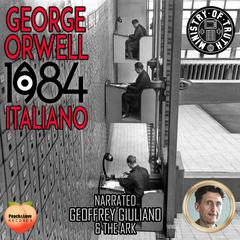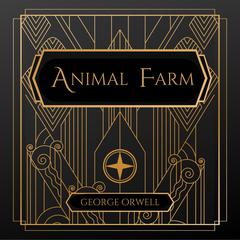 Play Audiobook Sample
Play Audiobook Sample
The Road to Wigan Pier Audiobook
 Play Audiobook Sample
Play Audiobook Sample
Quick Stats About this Audiobook
Total Audiobook Chapters:
Longest Chapter Length:
Shortest Chapter Length:
Average Chapter Length:
Audiobooks by this Author:
Publisher Description
When Orwell went to the north of England in the thirties to find out how industrial workers lived, he not only observed but shared in their experience. He stayed in cramped, dreary lodgings and subsisted on the scant, cheerless diet of the poor. He went down into the coal mines and walked crouching, as the miners did, through a one- to three-mile passage too low to stand up in. He watched the back-breaking, dangerous labor of men whose net pay then averaged $575 a year. And he knew the unemployed, those who had been out of work for so long they had sunk beyond despair into an inhuman apathy.
In his searing yet beautiful account of life on the bottom rung, Orwell asks himself why socialism—which alone, he felt, could conserve human values from the ravages of industrialism—had so little appeal. His answer was a harsh critique of the socialism and socialists of his time.
Download and start listening now!
"A surprisingly interesting read. Surprisingly appropriate, too. Orwell observes the role coal miners play in 1930's-1940's industrial England, and how they are taken for granted by a society that feels entitled to cheap fuel. Hmmmm. "
— Heather (5 out of 5 stars)
Quotes
-
“Orwell’s code was a simple one, based on truth and ‘decency’; he was important—and original—because he insisted on applying that code to his own socialist comrades as well as to the class enemy…It is the best sociological reporting I know.”
— New Yorker -
“Orwell brings his unparalleled powers of observation to portray the wretched conditions of the working class.”
— Amazon.com, editorial review
The Road to Wigan Pier Listener Reviews
-
" Wow! Although nearly 75 years old & written from a decidedly British perspective, this book is frighteningly relevant to the social & financial inequalities facing contemporary American audiences circa 2011. "
— Blane, 2/8/2011 -
" George Orwell was witness to the extreme poverty of 1930's England. This book is about his experiences and his solution to the problem. "
— David, 2/8/2011 -
" Orwell writes of his experiences living amoung and working with miners in norther England in the 1930's. Then he turns around a bashes, quite effectively, the Socialists who sponsored the enterprise. "
— Bruce, 1/17/2011 -
" Peters out a bit at the end. "
— Stephen, 11/26/2010 -
" hard going, depressingly good account of turn of the century northern britain "
— Karen, 10/24/2010 -
" This was a deceptive book. The first part of this book was a touching memoir of Orwell's jouney as a coal miner in 1930s Northern England. The second half was a half-baked rant about Orwell's view on socialism. The first part was excellent, the second part leaves much to be desired. "
— Jason, 10/21/2010 -
" I liked this book viewed as a view of politics from a certain point in History, however i can't help feeling that the views are pretty outdated by now. I have a feeling that Orwell was more against Fascism than for Socialism. "
— Alexander, 7/21/2010 -
" Hugely interesting book, and a true window into a period of history. Orwell's arguments are compelling but ultimately his Devil's Advocate approach ends up with one want to side with the Devil. Should be read in conjunction with The Road to Serfdom "
— Hywel, 6/29/2010 -
" Thought provoking, particularly "However well you may wish him, however much you may admire his mind and character, if his breath stinks he is horrible and in your heart of hearts you will hate him." (Chapter 8) "
— Tom, 4/8/2010
About George Orwell
George Orwell (1903–1950), the pen name of Eric Arthur Blaire, was an English novelist, poet, essayist, journalist, and literary critic. He is best known for his works of social criticism and opposition to totalitarianism. He also wrote nonfiction about his experiences in the working class and as a solder. His work remains influential in popular culture and in political culture, and the adjective “Orwellian,"describing totalitarian and authoritarian social practices, has become part of the English language. In 2008, the London Times named him the second-greatest British writer since 1945.
About Frederick Davidson
Frederick Davidson (1932–2005), also known as David Case, was one of the most prolific readers in the audiobook industry, recording more than eight hundred audiobooks in his lifetime, including over two hundred for Blackstone Audio. Born in London, he trained at the Royal Academy of Dramatic Art and performed for many years in radio plays for the British Broadcasting Company before coming to America in 1976. He received AudioFile’s Golden Voice Award and numerous Earphones Awards and was nominated for a Grammy for his readings.




































